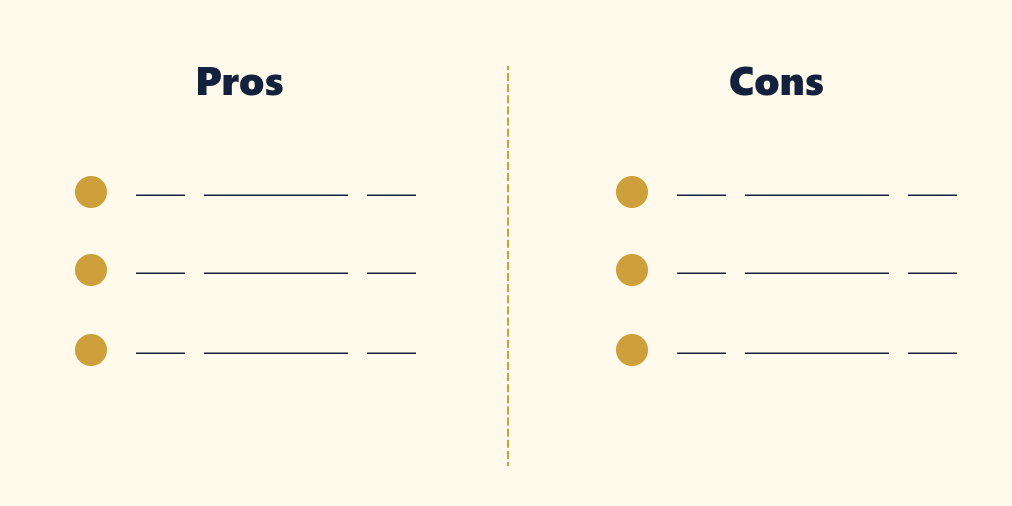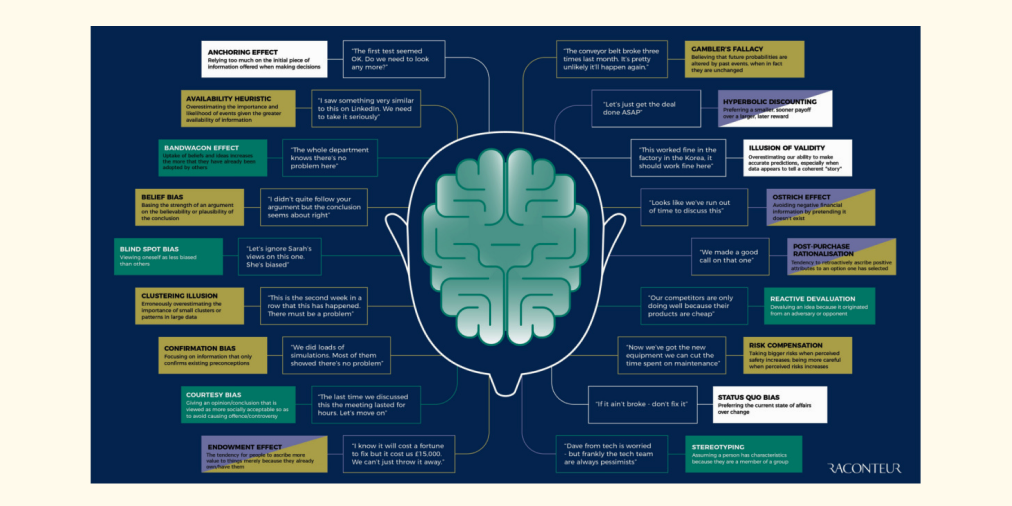Can you rely on your brain?
The human brain is an incredible machine, capable of doing a billion-billion calculations per second. Yet can you fully trust it? Can you rely on it 100%? Can you be sure that your choice was rational?
More often than not the answer is a BIG NO!! Our brain has its limitations. It makes mental errors and irrational decisions, which stop us from having the best outcome. In research, some of these limitations in judgement are termed as cognitive biases.
In this article, I want to walk you through the world of cognitive biases. Why do we have biases? What are these major biases? How can we overcome them?
Why do we have biases?
Our view of the world is often shaped by our experiences, our beliefs, our values, and our assumptions. These hard-wired traits that can sometimes lead to illogical thinking or deviations from making a rational judgment.
Also the overload of huge amounts of information does not help. In our pursuit to make decisions quickly and save us time and energy; we make a number of decisions unconsciously and they might be biased.
Biased decisions often stop us from having the best careers, the best relationships, and ultimately the best life.
What are some major biases?
According to Wikipedia, there are 188 types of biases. I want to highlight the 3 most common ones:
1st is the Recency Bias: As individuals, we have a tendency to overvalue the most recent information available to us because that info is especially fresh and prominent. An example of this is relevant in your work life, where a few managers tend to base your review on the most recent work that you did rather than on your performance throughout the entire cycle.
2nd is the Bandwagon Bias: Human beings tend to move in groups. They want to do things because others are doing them or believe them. I am very much prone to this bias. If someone came to me and asked why I started following Keto diet, one of the main reasons would be that many people around me were on keto diet and hence I did it.
3rd is the Confirmation Bias: As human beings, we tend to stick and give more weight to information that validates our point of view and dismiss any input that conflicts with our reasoning. For example, in the United Kingdom, those of us who voted for Brexit, would always focus on and agree with the benefits of it while those who voted against it are more likely to focus on its pitfalls.
If you want to know more about different types of cognitive biases, click on the image.
Given all these biases, the next question that naturally arises is..
How can we overcome biases?
The first and foremost step in overcoming any bias is its acceptance. It is only after you accept that you have a particular bias that you can move towards resolving it. You then need to ask the right questions. You need to challenge your thinking and cross-question your decisions.
Something that has benefited me individually and what I would recommend you is that before making any important decision, either professional or personal, write down both the pros and cons on a sheet of paper. Spelling them out on a paper will help you see the complete picture and help overcome some unknown biases.

There is no escaping
Biases are an inherent part of human life. They impact each one of us, they influence how we think and how we act. If they are not identified and compensated for, it can mean sub-optimal lives for each one of us. I understand it is difficult to overcome existing habits and let go of things we are most comfortable with. But we all need to take that first step.
